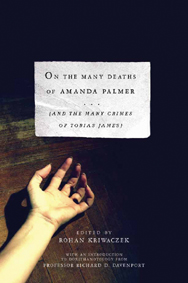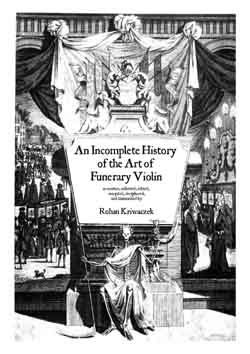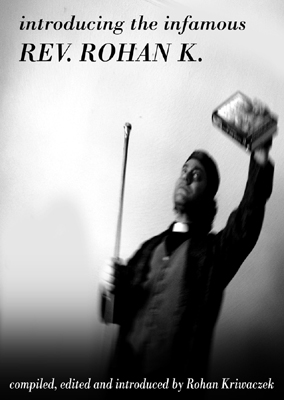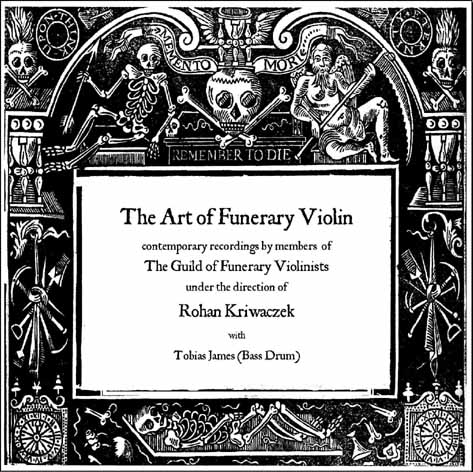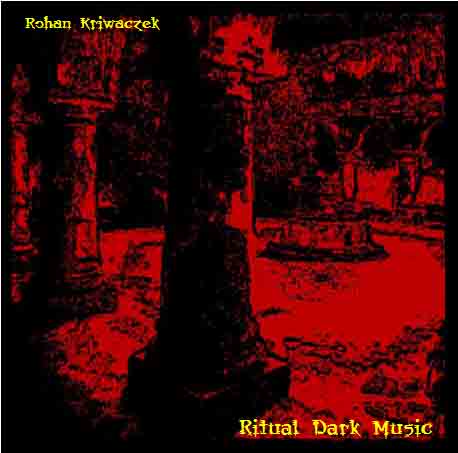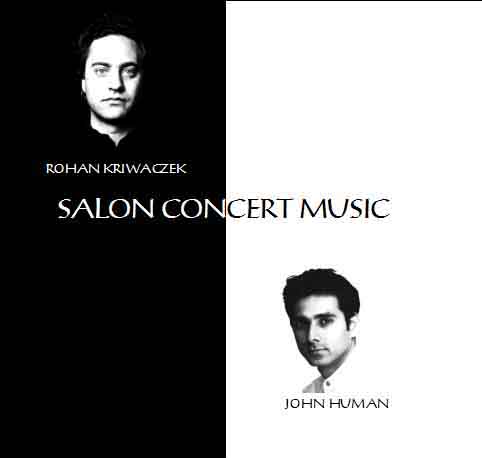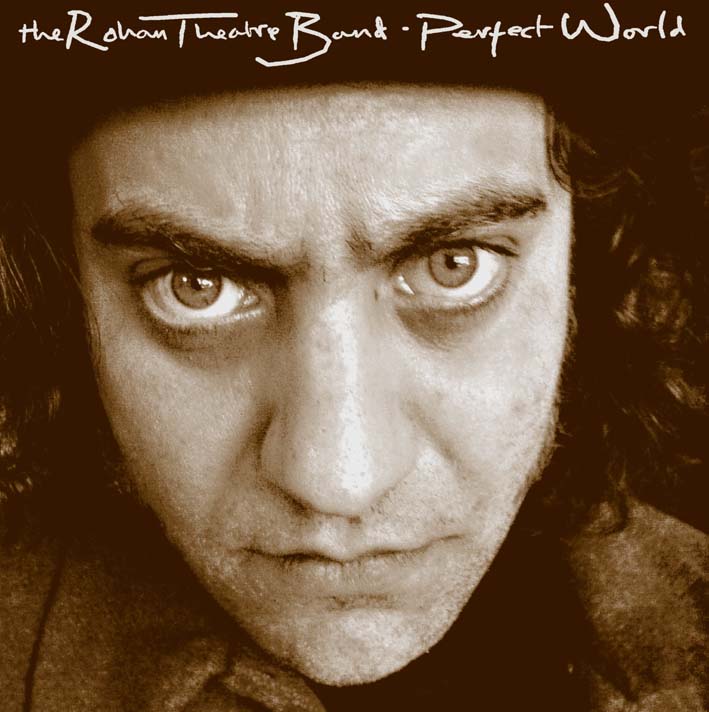to download this article as a free ebook click here
page 1 of 5
Revealing Willie Bergman
by Dr. Rohan Kriwaczek,
Senior Lecturer in Conceptual Ethno-musicology, University of Bexhill-on-Sea.
I have always known the music of Willie Bergman, for it formed a large part of the soundtrack to my early childhood, although of course I had no idea who or what it was, or even that it was extraordinary. To me it was the very definition of normality, the record Bubbe always played; it smelt of noodle kugal, pickled cucumber and moth balls. I later learnt that it had been my grandfather’s favourite album through the early sixties. He had died in 1969, two years after I was born, and Bubbe liked to play it whenever family came over to make him feel more present. I have no idea what happened to the record when Bubbe died, indeed I didn’t think about it at all for many years but something of its rich, smaltzy funkiness stayed with me. I could always recall it, distantly sounding somewhere in my inner ear, subtly informing my musical choices through life. A few years ago, I decided to try to find it. The problem was I didn’t have a name. Bubbe always called it Willie’s album, and I remember her telling me once that Oskar (grandfather) had been friends with Willie, that they had played in a band together during the war. But that was it, and it was not enough.
Then, in June 2004 I gave a public talk on traditional Sussex ballads and was accosted afterwards by an earnest and enthusiastic elderly gentleman who insisted he had a collection I should see. His name was Walter Bergman, and in one of life’s extraordinary coincidences, he was Willie Bergman’s son. The collection he had referred to told the story of the music I had been searching for, and it proved to be a surprising, contradictory and fascinating story indeed. It was a huge family archive of gramophone records, contracts, letters, legal documents, photographs and many hand written pages, which filled two large trunks and a book case. Over the next few months, as we steadily worked our way through the archive, each piece of paper was coloured in with tales and anecdotes told by Walter, not infrequently over glass of schnapz. I quickly realised the value of these conversations, and the inadequacy of my own note-taking, and so brought along a tape-recorder.
Sadly, shortly after we had finished this work, Walter died. On my recommendation the collection was left to the Mill Hill Museum of Jewish Antiquity, where it can now be studied by appointment. Four years on I am still collating the many recordings I made during those evenings, putting them into context, pulling them into readable shape, and I hope to have an extensive biography of Willie Bergman prepared for publication by 2011.
I know Walter, had he lived, would have been delighted at the sudden resurgence of interest in his father’s music, as a result of our and others recent efforts. And it has indeed been quite extraordinary. After nearly fifty years in obscurity his arrangements have suddenly become all but de rigueur. It seems he has at last been granted the success he both longed for and shunned; for Willie Bergman was, by all accounts, full of contradictions, right from the beginning.
****
William Efraim Bergman was born on July 16th 1917. His birth itself took place in a rented room above a tailor’s shop on Brick Lane that his mother shared with her parents and his three elder sisters. The room across the hall housed her sister and a number of other cousins. Willie’s father had been killed a few months earlier at the Somme. His parents had originally come to England from Russia in 1904 to escape the escalating pogroms, but had never managed to find their feet in the new country, and barely scraped by with a series of poorly paid jobs within the East End Jewish community. As soon as the children were old enough they too were put to work sewing sequins onto expensive ladies hats, or sorting bags of beads; anything that their tiny hands and sharp eyes could do to bring in a few extra pennies. However when, for his fifth birthday, Willie’s grandfather made him a cigar-box fiddle, his path through life took a sudden unexpected turn, for he almost immediately displayed a remarkable facility with the crudely made instrument, so much so that a few months later the tailor who worked downstairs presented the young boy with the gift of a real half size violin. Willie quickly outgrew his grandfather’s tuition and soon a proper teacher was found, one who was happy to trade lessons for clothing repairs. By his early teens Willie was earning more than the rest of his family put together playing at weddings and bar mitzvahs. But his sights were set much higher, and at the age of sixteen he won a scholarship to the Royal Academy of Music.
At the Academy he was placed firmly under the tutelage of the elderly and conservative John Dunn. Dunn was allegedly a fervent anti-Semite and, according to Walter, it was Dunn’s regular verbal abuse and favouritism of other students that pushed Willie towards his first great crisis of confidence and identity. Years later he wrote about this time in a letter to Walter:
... It seemed at the time that all my problems, all my difficulties in life, all my struggles, my trials and tribulations sprung from one thing: my Jewish roots. Throughout my childhood I had worked towards escape from that dreary colourless world into which I was born. And now I had finally achieved that escape, I was at the Academy, studying to earn my place among the gentiles; and yet even there my roots seemed to offend with such active virulence. And so I resolved to shed it all. To cleanse myself of all past, all roots, all culture. I would become an Englishman, a gentleman. I would deny my roots once and for all. And I would grow a splendid moustache as a badge of my newly invented English persona... And so I joined the British Union of Fascists.
Willie’s involvement with the BUF started in 1935 when he was nineteen. He was not particularly active as a member, seeing it more as a symbolic act of cleansing, though he did attend a number of important marches, including the now notorious “battle of Cable Street”. As can be imagined, his family were greatly upset and disowned him at the time, however this, of course, was just the response he was after. Nonetheless he did keep sending money to his mother which was always graciously accepted.
One day in March 1937 he attended a masterclass at the Royal Academy clearly inebriated and in full black shirted uniform, creating something of a scandal which resulted in his summary expulsion. However his involvement with the blackshirts had by then given him entree to the freemasons, and through them he moved into the world of big band, first as a jobbing saxophonist (he had taught himself to play many other instruments in his years at the Academy), and later as a composer and arranger. It was in November 1938, when news of Kristallnacht reached the East End Jewish community, that Willie finally renounced his membership of the BUF. He was afterall brought up on tales of the Russian pogroms and was well aware of the full implications of such an anti-Semitic uprising. Though he retained his assertion of Englishness, he also shaved off his moustache, as if to disassociate himself from the famously moustachioed Mosley, whose style he had intentionally borrowed.
This document is one of a number a memoir fragments found among Willie’s collection. Like all the other documents quoted it is currently available for study at the Mill Hill Museum of Jewish Antiquity – catalogue number WB-M4-206.
During this time the Musician’s Union was a closed shop and closely associated with the Freemasons. Membership of the Freemasons therefore was often a first step in joining the Musician’s Union, thus opening up a great many professional opportunities.
|

